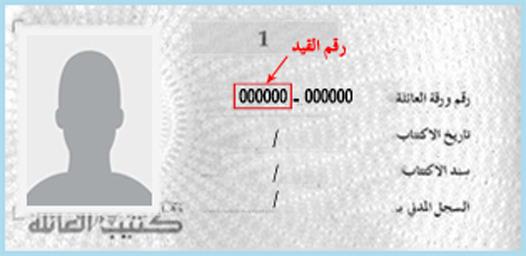By Nihal Zaroug.
Tripoli, 6 May 2013:
The National ID Number . . .[restrict](NID) project started under the former regime and redesigned by Libya’s post-revolution governments, has furnished 83.2 percent of Libyans with a national ID number to date.
According to the project’s Facebook page, 15.8 percent of citizens remain without a number. During a February press conference, Deputy Prime Minister Abdulsalam Al-Gadi, in charge of Technical Affairs, said that over six million Libyans would be provided with numbers this year.
However, those whose papers are not in order in the country’s civil registries and showed disparities, such as to name, date of birth, gender and mother’s name, are not being issued with new ID until investigations have been carried out.
People can check electronically if their ID number has been issued. There are several ways to do so, the main information required being the family book registration number and year of birth.
A Facebook survey on methods used for NID retrieval, shows SMS messaging as the second choice and third via telephone. The top means of inquiry was through the NID website, however it is now under construction for improvements.

The importance of the ID number was illustrated by Prime Minister Ali Zeidan’s presentation of this year’s budget. The General National Congress attached nine conditions to its approval – and at the top of the list was the activation of the NID.
The fact that post-revolution governments did not have an electronic and updated national database meant that proper planning has been stymied. Without precise numbers, adequate budgets have been difficult to set, leading to insufficient funds for some vital programs.
Libya’s post-revolution experience with the issuance of grants and benefits has seen large-scale exploitation. None more than the thuwar (revolutionaries) grant programme –suspended for claimant data irregularities – and the war wounded medical treatment abroad, which escalated to free-for-all trips at the government’s expense.
During Zeidan’s late night TV interview on Saturday, he revealed that the government was now able to detect salary fraud via NID. He stated that some 300,000 Libyans were in receipt of more than one state salary and some had more than 60 salaries.
The eradication of duplicate data is a main objective of the project. Streamlining and correcting irregularities will allow the government to know the exact cost of proposed programme and how to sustain them in the future.
Now that the new ID system is being rolled out, the Civil Status Department aims to make progress with the issuance of passports. It has held workshops and meetings with a German company to expedite the release of new passports.
For steps on accessing NID number visit their website or Facebook page. [/restrict]









